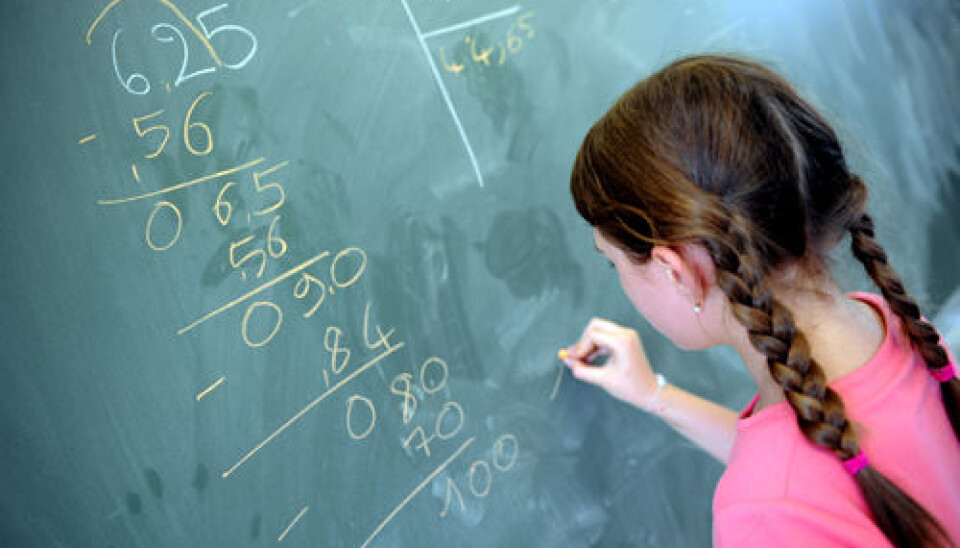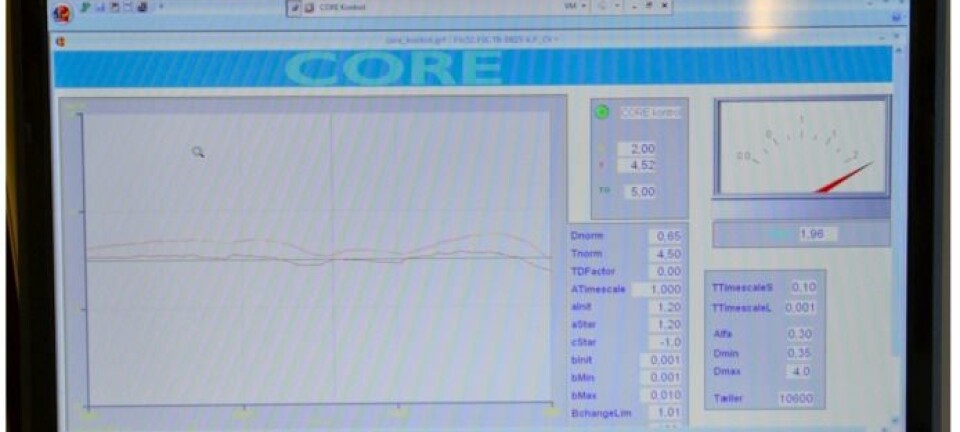
Care urged in labelling poor math learners
Children’s problems in learning maths should be taken seriously. But nobody gains from being labelled as being "bad at maths" at a tender age.
Acute learning difficulties with maths may be as common as reading and writing difficulties. Researchers estimate that as much as three to six percent of the population in Western countries may struggle with difficulties with maths.
There's even a word for learning disabilities in maths ― dyscalculia, which "means that a person finds it exceptionally difficult to learn arithmetic, such as addition and subtraction,” says Swedish Psychologist Rickard Östergren.
Counting on fingers
A typical sign of dyscalculia is when children need to count on their fingers long after other kids in class are figuring out the same arithmetic problems in their heads.
Critical learning difficulties with math, however, do not get nearly as much attention as problems with reading and writing.

Researchers have increased their study of the subject over the past decade. Nevertheless, Östergren says that ten research articles on dyslexia - or acute difficulties with reading - are published for every article on dyscalculia.
Research with labels
In a recent doctoral dissertation at Linköping University he analysed various hypotheses about how dyscalculia occurs. Östergren also has a background as a school psychologist.
Children suspected of dyscalculia can be given conflicting scores depending on the assessment tools used. Östergren stresses that no matter the test, substantial variation is to be expected regarding young children’s talents for understanding and working with numbers.
“As far as I’m concerned, we should be cautious about characterizing kids during the first years of school. We shouldn’t stamp kids with a label unnecessarily. Still, we do need to be attentive to the fact that some do have special needs,” says Östergren.
Follow-ups are essential
He says that precise evaluations are essential, preferably over a long period, before a child can be diagnosed with dyscalculia. A variety of assessment methods are in use and their criteria don’t necessarily mesh.
“The most important thing here is to note that some children have problems with this subject. The name we give this problem is secondary,” stresses Östergren.
Above all, he says, we need to be aware that the condition exists. If a child doesn’t succeed in maths he or she is not necessarily lacking in intelligence, lazy or unmotivated.
“We have to ensure that children do not experience years of school that are marred by neglect or by being labelled as dumb. We should know better by now,” says Östergren.
He’s an optimist who thinks schools can help a lot. Very little is static when it comes to children’s learning abilities. A slow and strenuous beginning does not exclude future successes.
Many combinations
Östergren found through his study that dyscalculia can be a combination of various factors, The brain is a complicated organ and manifold mental processes are involved in even the easiest math problems.
Poor comprehension of numbers can be compensated for with other talents. Thus it’s important to train these pupils correctly and remember that a diagnosis can be seen as an opportunity, the point of departure for helpful initiatives.
Dyscalculia is not the same thing as math anxiety or math phobia, terms often used for tension or fear that interferes with a student’s learning of mathematics.
However, dyscalculia might be the root cause of math anxiety, such as when a pupil has repeatedly experienced unpleasant and embarrassing situations in the classroom.
In some cases children suffer both dyscalculia and dyslexia. Professionals in the field disagree on the question of how closely associated the two conditions are. One thing is certain, mathematical learning disability can strike children who have no problems whatsoever with reading and writing.
-------------------
Read the Norwegian version of this article at forskning.no
Translated by: Glenn Ostling









